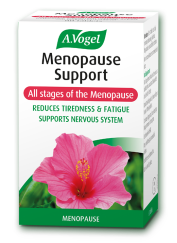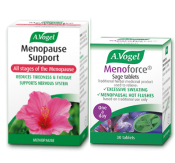Eileen
What is the menopause?
The menopause is the natural process women go through as they reach a certain age and is a normal part of life.
The first use of the term “menopause” is said to have been in 17th Century France. However, it is only relatively recently that there has been general awareness of menopause as a concept – 100 years ago, life expectancy was much shorter and few women lived long enough to experience it. Those who did were most likely the wealthy elite who would never dream of speaking about such matters anyway.
The word “menopause” is derived from Greek – mĕn or menos meaning “month” and pausis meaning “to stop”. This fits in very well with the medical definition of menopause, which is defined as the point when monthly periods, or menstruation, finally stops.
Going through the menopause
However, periods rarely just suddenly disappear in the menopause. Typically, the odd one might be missed or arrive late; periods may become heavier and less regular before ceasing completely.
This change in the normal pattern of the menstrual cycle may be accompanied by psychological symptoms such as mood swings, irritability, lowering of self-confidence as well as hot flushes and night sweats. These, and other menopausal symptoms, may be experienced for a few months or years.
Many people describe this phase as ‘going through the menopause’, ‘the change’ or ‘the change of life’. Scientifically, it is referred to as the peri-menopause – the period leading up to the menopause.
How do I know that it is the menopause?
This is a common question without a simple answer. Women may experience menopausal symptoms for some time before their final menstrual period (peri-menopause) and also, for some time after.
- The first thing to consider is your age. The average age for a woman to reach the menopause is 52 years, although it is known to start as early as 35 or as late as 60 years of age. If you are under 45 years of age, it is less likely (but not impossible) that symptoms you are experiencing are related to the menopause
- Next, look at our page on menopausal symptoms and see if what is described relates to you. Symptoms such as hot flushes and night sweats are the most commonly experienced. However, women may also find that their mood changes (feeling low) or that they start to suffer from muscle aches and joint pains
- If you are in any doubt, you should consult your doctor or other healthcare professional. However, blood tests taken by your doctor, although they may be of help in some cases, rarely give a straightforward answer.
Treating menopause symptoms
Many women go through the menopause experiencing a minimum of symptoms, coping well without the need for any treatment. However, others find that the menopausal symptoms experienced affect their quality of life and seek help and advice.
- The first thing you can try if you are seeking help for menopause symptoms is to see if you can improve your diet and lifestyle. Follow our link to read our Tips for a Healthy Menopause
- Two of the most common symptoms of the menopause are hot flushes and night sweats, experienced by over 80% of menopausal women. These may be helped with the use of Sage leaf extracts
- Other menopause symptoms such as low mood or sleeping poorly can also be treated using herbs. See our page on ‘Menopause treatment with herbs’ for more information
- There is a range of prescribed medicines your doctor might prescribe for menopausal symptoms. It is best to discuss with your doctor which may be suitable for you
- HRT (hormone replacement therapy) was favoured by the medical profession many years ago but has lost its popularity because of knowledge of its side effects. Many women prefer to avoid it, but some doctors will recommend it for women with severe menopausal symptoms.
Cause of the menopause
To understand what happens during the menopause, it will be helpful to know how monthly periods come about before one reaches the menopause. Follow our link to read more information on the menstrual cycle.
Before the menopause (and after puberty), a woman typically releases an egg each month. This process is controlled by a small gland in the brain, called the pituitary gland.
The older we become, the less fit we are and bearing a child later in life has higher risks for both mother and child. Nature recognises this and our genes are programmed in such a way that, when a woman reaches a certain point in her life, her body says that it is not wise to produce any more eggs.
When this happens, the hormones produced by the pituitary gland decline. This signals to the ovaries that eggs are no longer required and ovulation stops. The previously regular cycle of thickening and shedding of the lining of the womb is no longer required and periods stop. Levels of progesterone and oestrogen fall.
So biologically, menopause marks the end of the fertile period in a woman’s life and helps serve the purpose of ensuring that a woman bearing a child is fit to do so.
Changes in hormone levels during the menopause lead directly and indirectly to a wide variety of symptoms. The most common are hot flushes and night sweats, probably caused by hormonal changes altering the way the body perceives heat.
What can I expect?
Although all women will go through the menopause, there is no fixed or standard experience that can be described.
- A few women will be hardly aware of going through the menopause, experiencing very few symptoms
- For many, the menopause brings a change in the pattern of the monthly period. In addition, menopause sweating, hot flushes or night sweats may be experienced
- A small minority of women experience significant symptoms during the menopause, with symptoms severe enough to interrupt daily routine or disrupt quality of life.
However the menopause affects you, one thing must be remembered – the menopause is not an illness but a natural process which your body has to go through once you reach a certain age.
Benefits of the menopause
The menopause is sometimes thought of negatively, partly because it is associated with becoming older. However, there are some benefits to the menopause.
- With the menopause, monthly periods stop, bringing a revolution to a woman’s life
- Those with heavy bleeds, period pain and PMS (Pre-menstrual syndrome) can find that menopause will bring welcome relief to days of feeling unwell
- In addition, the end of the fertile period of life also brings benefits.









